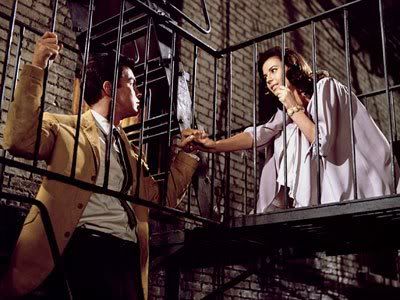Michel Foucault says that panopticism is when society uses a strategy similar to a prison system to control its citizens. The prison system has a guard that stands in the middle and the prisoners are separated and individualized by giving them individual cells where they can see one another. The idea is that if they can see each other than they will enforce social norms upon each other by rewarding normal behavior with acceptance and contrary behavior with alienation and retribution. The inmates who behave are rewarded and the ones who turn in misbehaving peers will be rewarded exceedingly. In this way society is panoptic because it uses fear and intimidation enforced by supervision of a central authority, and the supervision of one's peers. In class we watched a film about teenagers who gossip over the telephone about "who is going steady" and why they "will be together forever", or how they "wont last a day". The children, who represent middle-class American teenagers, are being panoptic because they are enforcing the gender roles set up by the authority figure of American society. The telephone represents the circular nature of the prison system, and how everyone is always watching everyone else to ensure that their behavior fits within the expectation.

We also saw a clip from "A Westside Story". In the clip one of the hooligans visits different authority figures within American society. He sees a police man, a judge, a therapist, and a social worker. The different authority figures represent the different schools of authority that exist within the center of the hooligans' world. It is panoptic because these figures observe the behavior of the teenager, as do his peers, and that behavior, which is deemed as inappropriate by the elite, forces the teen into exile from his peers and society. At the end the teens rebel against the panoptic tendencies of their society by choosing to not subscribe to expectations, and laughing at the authorities lack of capability to control them.


No comments:
Post a Comment